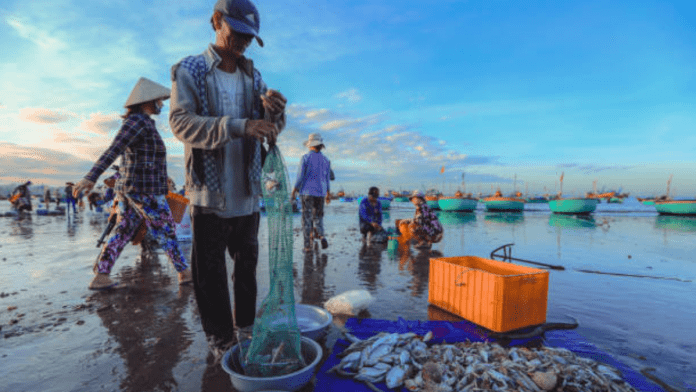News in brief:
– The World Trade Organisation’s Fish Month negotiations focus on regulating subsidies to combat overfishing and promote sustainable fishing practices globally.
– Despite progress with new member states embracing agreements, challenges remain in ratifying and implementing measures to address the economic impact of subsidies on local farmers and marine ecosystems.
In a bid to address the pressing issue of unsustainable fishing practices, the World Trade Organization (WTO) recently concluded its Fish Month negotiations. This initiative focused on regulating subsidies that often contribute to overfishing, particularly affecting local farmers in various regions.
During Fish Month, several new member states, including Barbados, Dominica, Senegal, and Uruguay, formally embraced an agreement aimed at tackling overcapacity and overfishing issues. This move underscores a global commitment to combatting unsustainable fishing practices.
Milestone achievement: agreement on fisheries subsidies
The discussions during Fish Month were built upon the foundation of the agreement on fisheries subsidies, which was approved at the 12th Ministerial Conference (MC12). This landmark agreement targets subsidies that fuel illegal, unreported, and unregulated (IUU) fishing, as well as those supporting overfished stocks.
The agreement aligns with United Nations Sustainable Development Goal (SDG) 14.6, marking a significant step towards regulating fisheries subsidies contributing to overcapacity and overfishing. By addressing these challenges, the Agreement aims to safeguard marine ecosystems and the livelihoods of local fishing communities.
While 60 member governments have formally accepted the Agreement, representing significant progress, challenges remain. The upcoming MC13 will play a crucial role in reviewing and voting on the proposed text, with a focus on regulating countries with the largest fishing industries.
Economic impact of subsidies
The impact of fisheries subsidies on global economies is substantial, with an estimated $35 billion spent worldwide. These subsidies, particularly in major fishing nations, often exacerbate overfishing and threaten the sustainability of marine resources.
Despite being adopted at MC12, the agreement has yet to take effect due to insufficient individual ratifications by WTO member states. There is a concerted effort to ratify the these issues by MC13, reflecting a collective commitment to ocean health and sustainable fishing practices.
As negotiations continue, there is optimism that the conference will mark a significant milestone in the journey towards combatting overfishing and promoting sustainable fisheries management.



